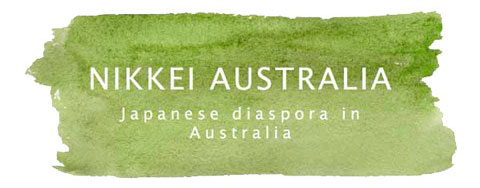Location 6: Cowra POW Campsite – Transcript of Cowra POW Campsite Story 2
(Audio: 3 mins 27 sec; 3.3MB)
Transcript:
[Tony Mooney] I can remember probably about aged 12 or 13 and, one of the boys at school told me that in his house there were bullet holes. And I thought, oh that’s a bit far fetched. And I found out many years later there was a house down below the campsite, and there was in fact machine gun bullets came through the roof, yeah.
[Isabel Coe] Aboriginal men and Aboriginal women both served in the war. We had two family members, a McGuiness and a Murray, who was actually guards up at the Prisoner of War Camp. Obviously it was a very tragic event and they got called in the night after the event.
[Gordon Rolls]
Well, I really don’t know how old I was when he did tell me the story. He never actually criticised the Japanese. My father spoke about them, what they did, and how they played baseball, and said they were very smart people, basically that way. You know. I don’t think he sort of really had any hatred towards them either.
[Jemma Pokoney] I couldn’t really understand that so many people had died, and it wasn’t until I went over to Japan that I realised that not only people in Australia are talking about it, but the people in Japan, you know, are affected too.
[Lawrance Ryan]
There was an opportunity to meet a group of Japanese POWs who came to Cowra in 1978. I always remember this story. I said to one fellow, I said, you know you escaped from the camp, what did you do? And he pointed at me and he said, how old are you? And I said, I’m 17. And he said to me, he said, I was 21, and he said, I got outside the camp. I’d escaped. And he said, I climbed a tree and I had a look around. And he said, when I got up to the top of the tree, he said, where I could get a good view, I cried. And I said, why did you do that? He said, because all I could see was Australian bush. And he said, I knew I couldn’t see the coast, I knew I couldn’t get back to Japan from here, and I wasn’t brave enough to kill myself and I hadn’t died in battle. And I thought to myself, what would I do in that situation? If I was not much older than I was at the time, and I was in a foreign country, I’d escaped because I felt great shame at being a prisoner of war, what would I do if I looked around and I knew all that I had to face before me was to be recaptured again? Whether you’re Australian, whether you’re Japanese, whether you’re Italian, you all have the same sort of feelings, and those feelings of being in a foreign place and being lonely and being frightened and not knowing what to do, would be the same sort of feelings that I would have just as that prisoner of war had. So that’s my first engagement with a Japanese prisoner first hand. And I still remember it quite clearly.
[Gordon Rolls]
Some of the prisoners here at Cowra, I’ve met their daughters, we had lunch with them, and then one of the daughters came out. And it’s, it’s an amazing friendship that’s developed from that with the Japanese and the Australians, it’s a beautiful friendship.
Producer/Sound Design: Masako Fukui
Music Credits: Tranquility by Kevin MacLeod (freemusicarchive.org) CC by 3.0
Impact Lento by Kevin MacLeod (incompetech.com) CC by 3.0
Photo Credits: Photo 1: Aerial view of the POW Campsite; Cowra Tourism Corporation
Photo 2: Japanese POWs erecting baseball nets, POW camp, 1944; AWM 067191
Photo 3: Front page of Sunday Telegraph August 6, 1944; AWM 044570

The Cowra Voices Audio Archive Project 2023
Cowra Council is the copyright holder of all the audio works in the Cowra Voices Audio Archive. If you would like to reuse or copy any of the materials in this Archive, please contact Cowra Council. Australian copyright law is set out in the Copyright Act 1968 (Commonwealth).
